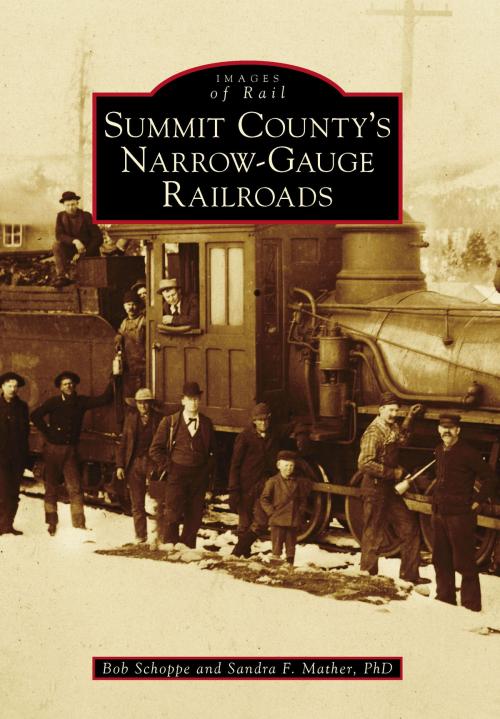Summit County's Narrow-Gauge Railroads
Nonfiction, Reference & Language, Transportation, Railroads, History, Art & Architecture, Photography, Pictorials, Travel| Author: | Sandra F. Mather Ph.D., Bob Schoppe | ISBN: | 9781439658659 |
| Publisher: | Arcadia Publishing Inc. | Publication: | November 7, 2016 |
| Imprint: | Arcadia Publishing | Language: | English |
| Author: | Sandra F. Mather Ph.D., Bob Schoppe |
| ISBN: | 9781439658659 |
| Publisher: | Arcadia Publishing Inc. |
| Publication: | November 7, 2016 |
| Imprint: | Arcadia Publishing |
| Language: | English |
Summit County's Narrow-Gauge Railroads tells the story of the two railroads that fought for dominance in Summit County, Colorado, during the late 1800s and early 1900s: the Denver, South Park & Pacific and the Denver & Rio Grande. The two railroads developed an intense rivalry as they sought to monopolize the county's economic potential. Altitude, heavy winter snow, and rugged mountainous terrain combined to provide a unique set of challenges to company management as well as to the crews as they battled to lay the tracks and provide much-needed rail service to the residents and businesses of the county. Intimately tied to the mining economy, the fortunes of the railroads plummeted when the mining economy collapsed. Although poorly financed and poorly built, the railroads changed the living conditions for county residents. Without the railroads bringing the necessary equipment and lumber, nine huge gold-dredging boats would not have scoured the county's major waterways between 1898 and 1942.
Summit County's Narrow-Gauge Railroads tells the story of the two railroads that fought for dominance in Summit County, Colorado, during the late 1800s and early 1900s: the Denver, South Park & Pacific and the Denver & Rio Grande. The two railroads developed an intense rivalry as they sought to monopolize the county's economic potential. Altitude, heavy winter snow, and rugged mountainous terrain combined to provide a unique set of challenges to company management as well as to the crews as they battled to lay the tracks and provide much-needed rail service to the residents and businesses of the county. Intimately tied to the mining economy, the fortunes of the railroads plummeted when the mining economy collapsed. Although poorly financed and poorly built, the railroads changed the living conditions for county residents. Without the railroads bringing the necessary equipment and lumber, nine huge gold-dredging boats would not have scoured the county's major waterways between 1898 and 1942.















